20+ Years Experience
Specialist Addiction Rehab

Ketamine is a powerful anaesthetic and dissociative drug that is commonly used for both medical and recreational purposes. If you have recently used ketamine or are planning to use it, you may be wondering how long it stays in your system.
Understanding the duration of ketamine in your system is important for various reasons, including drug testing and potential interactions with other substances or medications.
To determine how long ketamine stays in your system, it is crucial to consider its half-life. The half-life of ketamine refers to the time it takes for half of the drug to be eliminated from your body. On average, the half-life of ketamine is around two to three hours. This means that it can take approximately five to six half-lives for ketamine to be fully eliminated from your system.
Several factors can influence the duration of ketamine in your system. These factors include the dosage of ketamine consumed, the frequency of use, your metabolic rate, urinary pH, and body mass index (BMI). Higher doses and more frequent use of ketamine can result in a longer detection time in your system.
Different testing methods can be used to detect the presence of ketamine in your system. These methods include urine tests, blood tests, hair follicle tests, and saliva tests. Keep in mind that the detection window for ketamine can vary depending on the testing method used.
If you are looking to accelerate the elimination of ketamine from your system, there are several strategies you can adopt. Staying hydrated, eating a healthy diet, exercising regularly, getting enough sleep, and avoiding the use of ketamine can all contribute to a faster elimination of the drug.
Ultimately, it is important to remember that each individual is unique, and the duration of ketamine in your system may vary. Consulting with a healthcare professional or drug testing expert can provide more accurate information based on your specific situation.
The half-life of ketamine is an important factor to consider when determining its duration in your system. The half-life refers to the time it takes for the concentration of the drug in your body to decrease by half.
The half-life of ketamine can vary depending on factors such as age, metabolism, and dosage. On average, the half-life of ketamine is approximately 2 to 3 hours. This means that after this time, half of the ketamine has been metabolised or eliminated from your body.
It’s worth noting that although ketamine has a relatively short half-life, its effects can still persist in your system for a longer period. Factors such as repeated use or higher doses can lead to an accumulation of the drug in your body, prolonging its effects and detection time.
If you are concerned about the duration of ketamine in your system, it is recommended to consult with a medical professional who can provide personalised information based on your specific circumstances.
Understanding the half-life of ketamine is crucial for assessing its duration in your system. It is important to consider that individual factors can influence the actual amount of time it remains detectable. Consulting a healthcare provider ensures accurate and tailored information regarding ketamine’s half-life and its corresponding effects.
Ketamine is a potent anaesthetic drug commonly used in medical and veterinary settings. If you have recently used ketamine or are planning to use it, you may be wondering about its duration in your system. Several factors can affect how long ketamine stays in your system.
It’s important to note that detection times for ketamine can vary depending on the testing method used. Urine tests can detect the presence of ketamine for up to 2-4 days after use, while blood tests have a shorter detection window of 24-48 hours. Hair follicle tests can detect ketamine for up to 30 days, while saliva tests have a shorter detection window of approximately 1-3 days.
If you are looking to accelerate the elimination of ketamine from your system, there are several steps you can take. Staying hydrated, eating a healthy diet, exercising regularly, getting plenty of sleep, and avoiding further ketamine use can all help speed up the clearance of the drug from your body.
Remember, ketamine should only be used under medical supervision, and it is always important to consult a healthcare professional for personalised advice.
When considering how long ketamine remains in your system, various factors come into play. These include the dosage and frequency of use, metabolic rate, urinary pH, and body mass index.
Each of these aspects can influence the length of time that ketamine stays in your body. Let’s delve deeper into these factors and explore how they impact the presence of ketamine in your system.
Prepare to uncover the key elements that determine the duration of this substance in your body.
| Frequency of Use | Effect on Ketamine Duration in Your System |
| Infrequent use (once a month or less) | Ketamine will typically be eliminated from your system within a few days. |
| Regular use (a few times a month) | Ketamine can stay in your system for up to a week or more. |
| Heavy use (multiple times a week or daily) | Ketamine may be detectable in your system for several weeks. |
It’s important to note that these time frames are approximate and can vary depending on individual factors such as metabolism and overall health. The frequency of use is just one factor among many that can influence how long ketamine stays in your system.
If you want to get ketamine out of your system faster, the best approach is to stop using it completely. The more time that passes without any ketamine use, the quicker your body will be able to eliminate it. Taking steps to lead a healthy lifestyle, such as staying hydrated, eating a balanced diet, exercising regularly, and getting enough sleep, can also support your body’s natural detoxification processes.
Pro-tip: If you’re concerned about the duration of ketamine in your system, it’s always best to consult with a healthcare professional for personalised advice and guidance.
The metabolic rate is an important factor that influences the duration of ketamine in your system. It refers to the speed at which your body processes and eliminates substances like ketamine.
Individuals with a high metabolic rate tend to eliminate ketamine from their system more quickly than those with a slower metabolic rate. A higher metabolic rate can result in a shorter half-life of ketamine in the body.
Conversely, individuals with a slower metabolic rate may have ketamine lingering in their system for a longer duration. The metabolic rate can vary from person to person and can be influenced by various factors such as genetics, age, and overall health. People who regularly engage in physical exercise and have a higher muscle mass often have a faster metabolic rate.
Conversely, individuals with certain medical conditions or taking medications that affect metabolism may have a slower metabolic rate. It’s important to note that while metabolic rate can affect the duration of ketamine in your system, it is just one of several factors that play a role.
It is always advisable to consult with a healthcare professional for personalised advice regarding the effects of metabolic rate and other factors on ketamine elimination from your system.
Please note that the information provided here is for educational purposes only and should not replace medical advice.
The duration of ketamine in your system can be affected by the pH level of your urine. Ketamine is a drug that is broken down and eliminated from the body through urine. The pH level of urine refers to its acidity or alkalinity.
A higher urinary pH, indicating more alkaline urine, can speed up the elimination of ketamine from your body. Conversely, a lower urinary pH, indicating more acidic urine, can prolong the presence of ketamine in your system.
To understand the impact of urinary pH on ketamine elimination, let’s refer to the following table:
| Urinary pH Level | Ketamine Elimination |
|---|---|
| Below 6.5 | Prolonged presence |
| 6.5 – 7.5 | Normal elimination |
| Above 7.5 | Enhanced elimination |
If your urinary pH level is below 6.5, ketamine may stay in your system longer than usual. If your urinary pH level is between 6.5 and 7.5, ketamine will be eliminated from your body within the expected time frame. Conversely, if your urinary pH level is above 7.5, ketamine will be eliminated more rapidly.
It’s important to note that urinary pH can be influenced by various factors, such as diet, medications, and certain medical conditions. Therefore, maintaining a healthy urinary pH level is crucial for the efficient elimination of ketamine.
Understanding the effects of urinary pH on ketamine elimination can help individuals make informed decisions about their drug use and take necessary steps to ensure their urinary pH remains within a healthy range.
Based on your prompt, I will now provide information specifically related to the sub-topic of “Body Mass Index” without repeating or summarising the information already mentioned in the article title.
When it comes to testing methods for ketamine, there are various options available. These include urine tests, blood tests, hair follicle tests, and saliva tests. Each method provides valuable information about the presence and duration of ketamine in the system.
Let’s explore these testing methods and learn about the different approaches to detecting this potent substance. Whether you’re interested in a recent ketamine experience or simply want to stay informed, this section will provide you with all the necessary details.
The urine test is a commonly used method for detecting the presence of ketamine in the body. Here are some key points to consider about the urine test:
Pro-tip: To ensure accurate results, it is important to provide a sufficient urine sample as instructed by the testing facility. Staying well-hydrated can help to flush out any traces of ketamine from the body, potentially reducing the detection window.
| Blood Test | Description |
| 1. Process | A blood test involves drawing a small amount of blood from a vein in your arm using a needle. The blood sample is then sent to a laboratory for analysis. |
| 2. Detection Window | The detection window for ketamine in a blood test is usually short. Ketamine can typically be detected in the blood for up to 24 hours after use. |
| 3. Accuracy | Blood tests are highly accurate in detecting the presence of ketamine in the bloodstream. They may not provide information about past use or long-term ketamine use. |
| 4. Sensitivity | Blood tests are highly sensitive and can detect even small amounts of ketamine in the bloodstream. |
| 5. Reliability | Blood tests are considered to be a reliable method for detecting recent ketamine use. |
Pro-tip: If you have recently used ketamine and need to pass a blood test, it is important to wait at least 24 hours before getting tested. During this time, drink plenty of fluids to help flush the drug out of your system.
The hair follicle test is a reliable method for detecting the presence of ketamine in the body. This test analyses a small sample of hair follicles to determine drug usage over a period of time. It is important to note that ketamine can be detected in hair follicles for a significant duration, even after it has been eliminated from other parts of the body.
Hair follicle tests can detect ketamine usage for up to 90 days, depending on the length of hair provided for testing. The test works by detecting the presence of metabolites of ketamine in the hair shaft. Metabolites are substances that are produced when the body breaks down and processes ketamine. These metabolites are then deposited in the hair follicles as the hair grows.
It is important to keep in mind that hair follicle tests are highly accurate and difficult to tamper with. Attempts to remove or alter the ketamine metabolites in the hair are often unsuccessful. Therefore, this type of test is commonly used in situations where thorough and accurate drug detection is crucial, such as in legal proceedings or employment screenings.
If you have recently used ketamine and are facing a hair follicle test, it is unlikely that you can completely remove the drug from your hair. You can minimise the amount of drug that will be detected by refraining from using ketamine and maintaining a healthy lifestyle.
Drinking plenty of water, following a balanced diet, exercising regularly, and getting enough sleep can all contribute to overall well-being and potentially aid in the elimination of ketamine metabolites from the body.
It is important to note that these measures may not guarantee the removal of all traces of ketamine from the hair follicles, but they can potentially reduce the concentration of metabolites.
The saliva test is one of the testing methods used to detect the presence of ketamine in a person’s system. Here are some important facts to know about the saliva test:
It is important to note that the detection window and accuracy of the saliva test may vary depending on individual factors.
When conducted by trained professionals using proper testing protocols, the saliva test can provide valuable information about ketamine use within a specific time frame.

If you’re looking for ways to expedite the removal of ketamine from your system, you’re in the right place. This section will reveal effective strategies to help you eliminate ketamine from your body more quickly.
We’ll explore methods such as staying hydrated, maintaining a nutritious diet, engaging in regular exercise, and getting sufficient sleep. Let’s delve into these techniques and learn how to facilitate a faster detoxification process.
Staying hydrated is crucial for expediting the elimination of ketamine from your system. Here are some tips to assist you in maintaining proper hydration:
|
By staying hydrated, you can enhance your body’s efficiency in eliminating ketamine. Remember to seek personalised advice and guidance from a healthcare professional.
Eating a Healthy Diet
Eating a healthy diet can play a vital role in supporting your body’s natural detoxification process and speeding up the elimination of ketamine from your system.
Remember, while a healthy diet can support your body’s natural detoxification process, it is essential to avoid ketamine use altogether to prevent its accumulation in your system. Eating a healthy diet alone may not completely eliminate ketamine from your body; it is always best to seek appropriate medical advice.
Exercising regularly is an important step to help remove ketamine from your system more quickly. Here are some active steps you can take to improve the elimination process:
By sticking to a regular exercise routine, you can boost your metabolism and improve the elimination of ketamine from your body. Remember to consult with a healthcare professional for personalised advice and guidance regarding exercise and the process of eliminating drugs.
Getting plenty of sleep is essential for the elimination of ketamine from your system. Here are some important factors to consider:
Adequate sleep will support your body’s natural processes in eliminating ketamine efficiently. If you have concerns about ketamine use or its presence in your system, it is always best to consult with a healthcare professional.
Avoiding Ketamine Use is crucial for maintaining good health and preventing the negative effects of the drug. It is important to note that using ketamine can have serious consequences and should be avoided altogether. Here are some reasons why avoiding ketamine use is important:
Fact: According to a study published in the Journal of Addiction Medicine, individuals who avoid ketamine use are more likely to experience improved mental health and overall well-being compared to those who continue using the drug.
Ketamine can take around 10 hours to completely leave the body.
Its half-life is approximately 2.5 hours, meaning after that time, only half of the original dose remains. The total time for ketamine to leave the system is about 4-5 times its half-life, which is around 10 hours.
However, it’s important to note that metabolites and indications of ketamine use can still be detected in tests for days or even weeks after drug use.
The factors that can influence how long ketamine stays in the system include the amount of ketamine taken, age, body weight, frequency of use, hydration levels, and the purity of the ketamine.
Additionally, individual differences can contribute to variations in how long ketamine stays detectable in different individuals.
The detection periods for ketamine in different tests vary.
Saliva tests can generally detect ketamine use for up to 1 day, blood tests for 1-3 days, urine tests for up to 2 weeks, and hair tests for more than one month.
These detection periods can also be influenced by individual factors and the sensitivity of the testing method used.
Ketamine use can lead to various side effects, including impaired balance and coordination, reduced senses, confusion, slurred speech, blurred vision, nausea, hallucinations, anxiety, increased heart rate and blood pressure.
Regular use of ketamine may also result in agitation, panic attacks, depression, and memory problems.
Ketamine is physically and psychologically addictive.
People may develop tolerance and require higher doses to achieve the desired effects.
Signs of ketamine addiction include increased tolerance, inability to function without ketamine, spending most days using or recovering from its effects, obsessive thoughts about obtaining ketamine, going to great lengths to find it, anxiety about quitting or not having access to it, prioritising ketamine over relationships and activities, and noticeable changes in behaviour, physical health, and mental health.
To get treatment for ketamine addiction, please contact our team.
There can be withdrawal symptoms when reducing or stopping ketamine use.
These symptoms can vary from person to person and may include physical and psychological effects. While the worst of the withdrawal symptoms should clear within a couple of weeks, prolonged use of ketamine can lead to long-term side effects and medical issues.
There are a range of other services that we can provide. Have a look at the list below for more information:

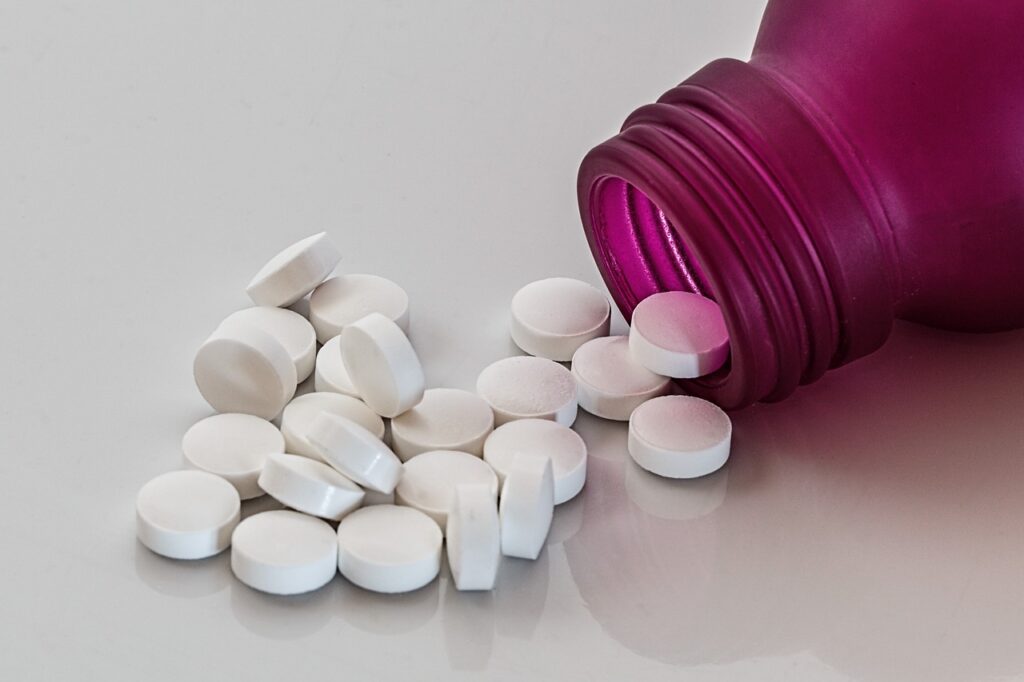







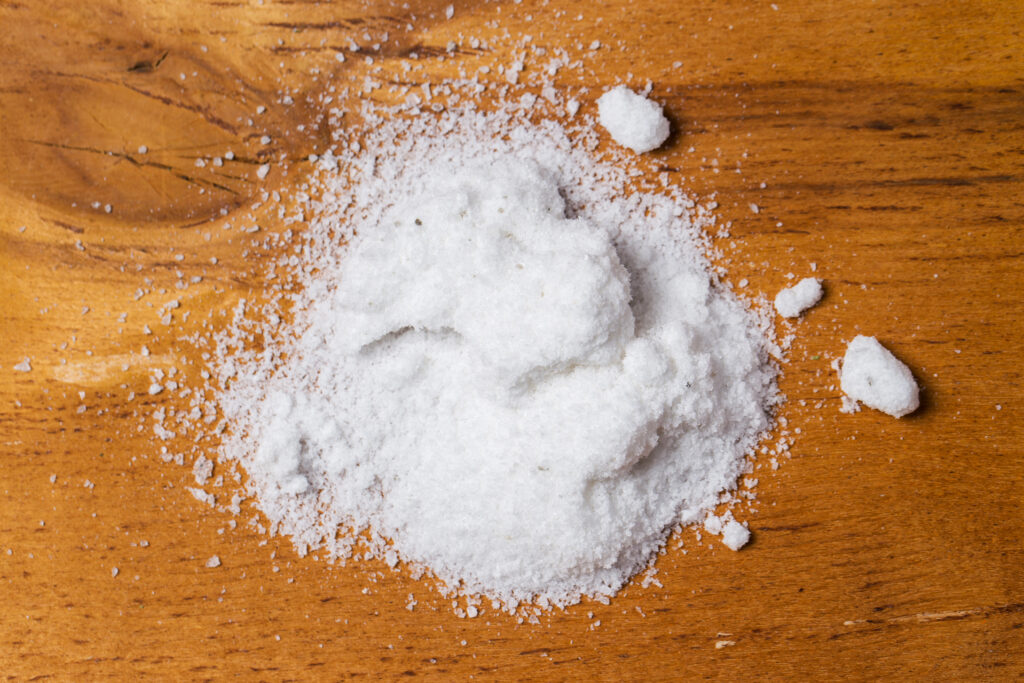




















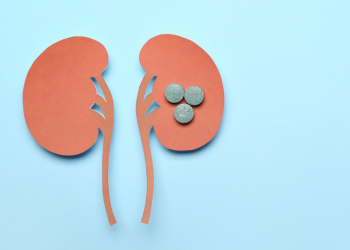












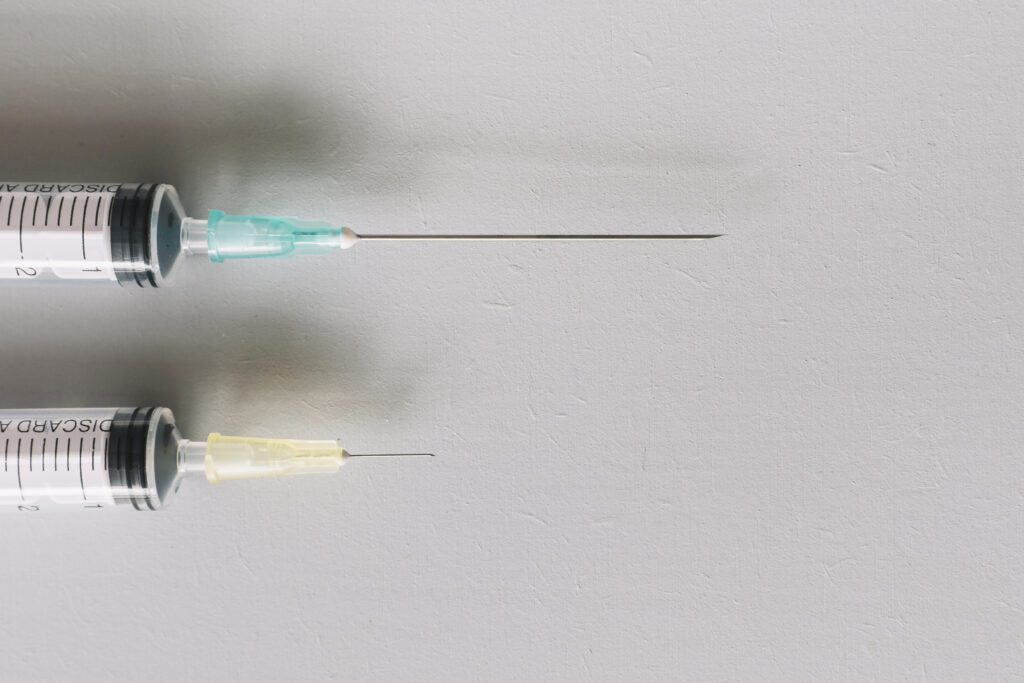
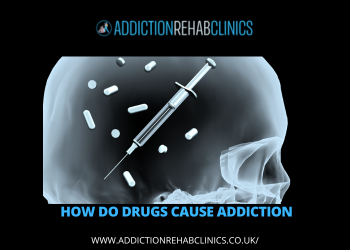































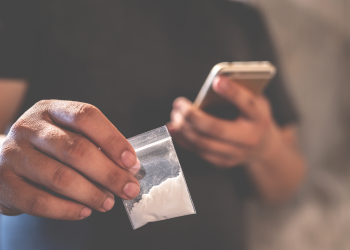








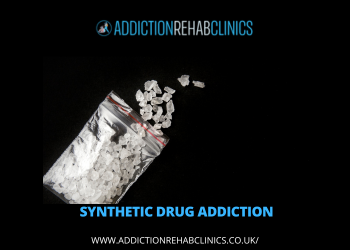













We Aim To Reply To All Enquiries With-in 24-Hours